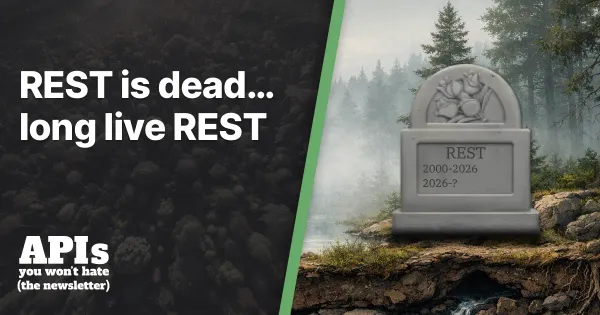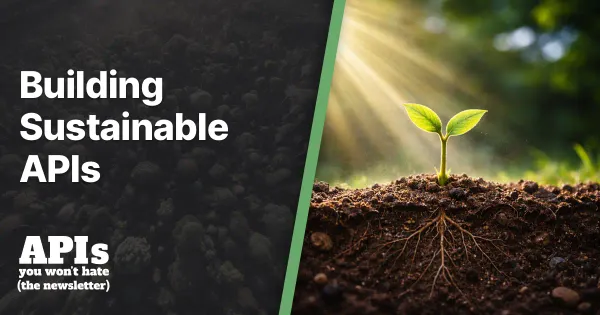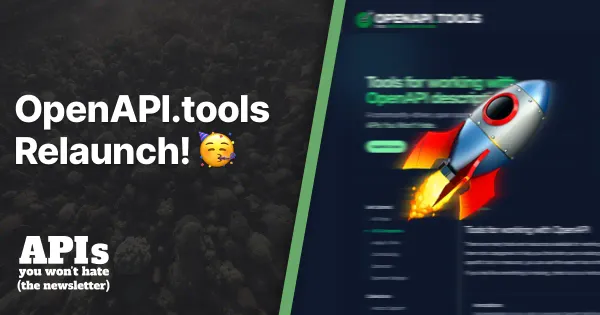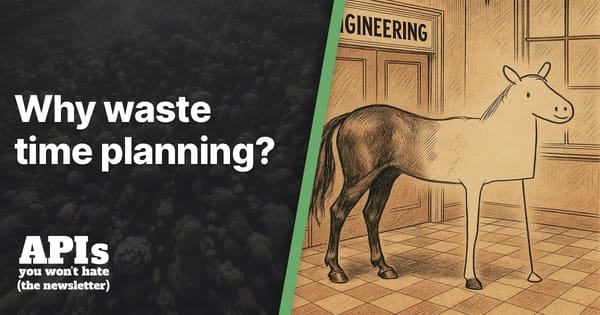Climate Friendly APIs
There are many environmentally friendly options available to developers building APIs. Taking small steps to make your code more environmentally can make a big difference. Hop in to learn about some climate-friendly options for tooling.

Reducing the environmental impact of the software we write is crucial in helping our industry limit its environmental impact. Due to a lack of inaction and the continuous push of the fossil fuel industry, we all must do our part.
Sometimes, things can feel overwhelming, or life circumstances limit your ability to live in a van and plant trees daily. Thankfully, you can adopt green practices into your code, meaning you can have a real impact with every release you push.
While this newsletter focuses on software, if you are interested in what you can do on a more personal level, Phil has written a fantastic blog series. Starting with explaining the problem, he then digs into food, waste, electric cars and transport.
-- Alexander
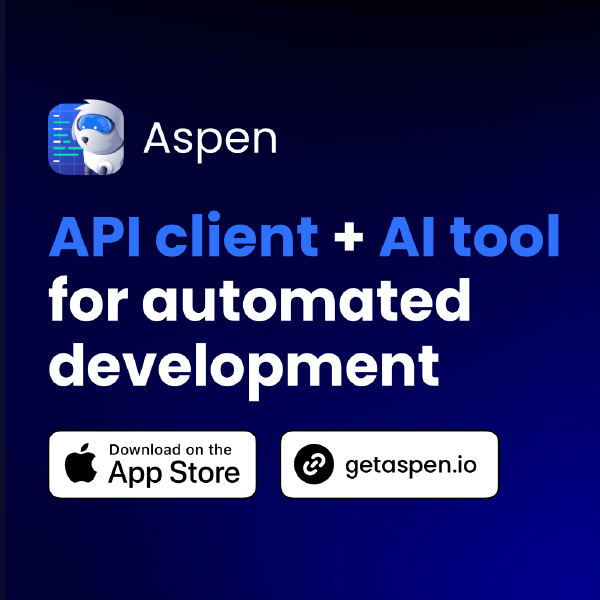
Meet Aspen: Revolutionize Your API Testing Workflow!
Explore Aspen by Treblle, the advanced HTTP client revolutionizing REST API interactions with AI-powered integrations and instant code generation. Enjoy secure, local data storage and exceptional performance on MacOS, ensuring minimal memory and CPU usage.
Download Now (No account required)The API Round-Up
Our monthly round-up of articles, news and updates from APIs You Won't Hate and around the web.
What is Green Software
Unsure where to start on the green path? Phil covers what green software is and why you should care. He gives a high-level overview of carbon grid intensity and temporal/spatial shifting. A great place to start if you are unsure.
Green Software Foundation
The Green Software Foundation is on a mission to build a trusted ecosystem of standards, tools and best practices. They have some fantastic resources to get you started covering green software practices and a whole host of patterns you can use to reduce your software footprint. Their Carbon Aware SDK provides a web API and command line tool to help you pick the greenest times and locations to run your applications.
Cloud Carbon Footprint
Working across multiple cloud providers, or maybe you're using AWS, and you can't get the granularity you need on the emissions of your software? Cloud Carbon Footprint has got you covered. You can run their full-fledged API and web portal or set up the API. The emission reporting is entirely transparent, and the accuracy beats many of the default reporting offered by cloud providers.
Electricity Maps API
This API allows you to measure the origin and footprint of consumed electricity. It can also be used with the Cloud Carbon Footprint tool above for more accurate emissions. The API has real-time data and forecasts—a great tool to help build carbon-aware platforms.
APIs You Won't Hate
The latest from the team at API's You Won't Hate.
🎙️ Redocly, OpenAPI, and Learning to Moonwalk with Lorna Jane Mitchell
Phil sits down with Lorna Jane Mitchell to get the latest on what's going on at Redocly, the state of OpenAPI 3.1, and what's to come with OpenAPI's proposed 4.0 spec, Moonwalk.
🎙️ Microsoft built Kiota to keep an API with 20,000 endpoints humming
In this episode of the podcast, Phil has a chat with Darrel Miller and Vincent Biret from Microsoft's Graph API team. They discuss Kiota, Microsoft's API-wrangling toolset which was born from a need to manage 20,000 endpoints on their Graph API's v1 endpoint.
From Our Community
Articles written and shared in our free Slack community.
How Rigorous API Testing Can Prevent Outages During Disasters
Dana has been sharing some fantastic articles in our Slack community. In this issue, he focuses on testing and how covering all your bases with tests can prevent severe outages. The article offers a great example of a disaster app that hits a rate limit during a disaster. A great read; thank you, Dana.
Support APIs You Won't Hate
When you become an member, you'll get access to members-only content while directly supporting our work. Your support helps us to keep making resources for the API community.
Become a member todayThanks so much for reading, and for supporting APIs You Won't Hate.
Until next time!
Alexander, Phil, and Mike


